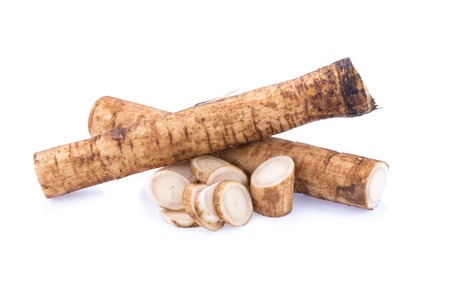Burdock is a plant with an edible root that’s popular for a number of natural remedies. Burdock is often taken to improve urine flow, to treat colds, to fight cancer, to ease gastrointestinal discomfort and even to soothe joint pain. As is so often the case with natural remedies though, not all of these uses are backed by the science and it can be difficult separating the fact from the hype.
The Studies
Early research does suggest that burdock may have some usefulness in reducing blood sugar when taken along with water, salt and ginger extract. This might make it useful as an aid in treating diabetes and further studies are being conducted looking into this role (1). Suppressing blood sugar spikes may also have some other benefits for dieting, particularly in helping to control hunger and to reduce lipogenesis (fat storage).

Beyond that, burdock is lacking in any convincing research. There is no evidence that it treats psoriasis, gout, acne, stomach conditions or many of the other conditions it is claimed to. Burdock root is often suggested for breast cancer sufferers but studies conducted so far show that it doesn’t improve quality of life for those living with the condition. There is likely no harm in taking it as a supplementary medicine if you are so inclined, but it certainly isn’t an effective treatment alone.
Burdock root is a fairly good source of nutrition however. It contains a fair portion of potassium (6.5% of your RDA per root) and also has small amounts of vitamin C and E, niacin, folic acid, riboflavin, zinc, calcium and more.
Overall though, there are more nutritious food supplements out there and there is very little evidence for its use as a medicinal aid. Overall then, it’s hard to particularly recommend burdock root unless you just love the taste!



